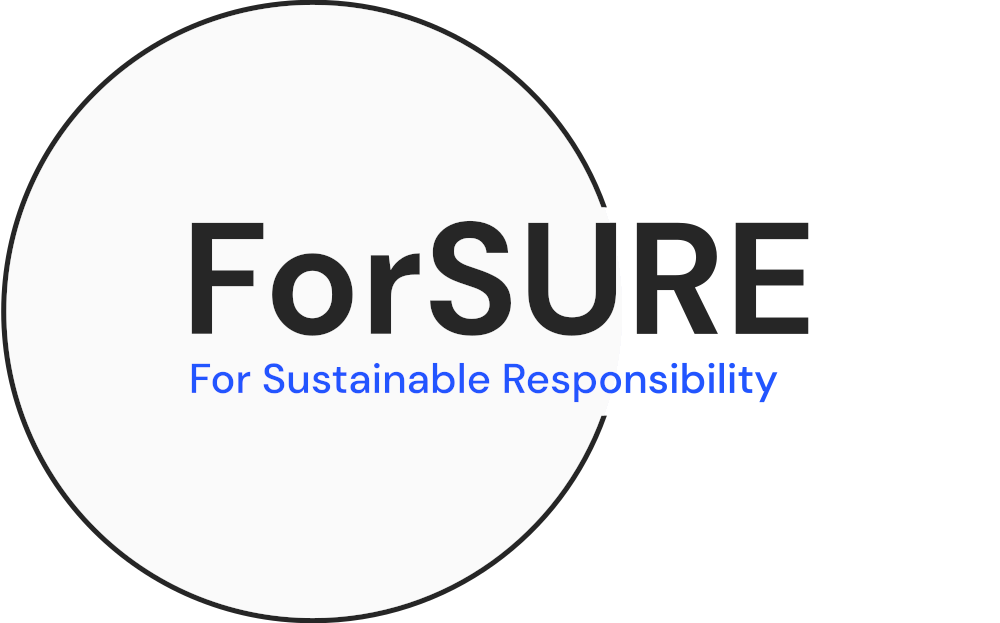
Compliance in Business: A Beginner-Friendly Guide for EU Professionals
April 03, 2025 Niclas BrinkmannTable of Contents
What Is Compliance in Business?
Compliance in business means ensuring that your company follows all applicable laws, regulations, standards, and ethical practices. Whether you're a small startup or a growing enterprise, compliance forms the backbone of legitimate, trustworthy operations. It includes everything from paying taxes and protecting employee rights to safeguarding customer data.
Compliance Meaning in Business
The compliance meaning in business is simple: it's about aligning your business activities with legal and ethical expectations. This can include both regulatory requirements (external rules) and internal codes of conduct (internal policies). A strong compliance culture creates transparency, reduces risks, and ensures consistent operations.
Compliance Company Definition
The compliance company definition refers to a business that integrates legal and ethical standards into its day-to-day operations. Such a company ensures it adheres to tax laws, employment rules, industry-specific regulations, and internal procedures designed to uphold integrity and efficiency. Compliance also builds resilience against market volatility and regulatory scrutiny.
Compliance vs. Ethics
While often linked, compliance and ethics are not the same. Compliance focuses on what the law requires, while ethics goes beyond the minimum legal threshold to include fairness, honesty, and corporate responsibility. Ethical companies don’t just avoid penalties, they lead by example, setting a standard that earns long-term loyalty.
What Is Regulatory Compliance?
Regulatory compliance refers to a company’s adherence to laws and regulations imposed by governing bodies. These can be local, national, or—especially relevant in the EU—supranational, like GDPR. Not complying can result in heavy fines, reputational damage, and even legal action.
In the European Union, regulatory compliance often includes:
-
- General Data Protection Regulation (GDPR)
- EU Working Time Directive
- Environmental Protection Laws
- Anti-Money Laundering Directives
- EU Corporate Sustainability Reporting Directive (CSRD)
- EU Whistleblower Protection Directive
Understanding what regulatory compliance is, is crucial to staying ahead of legal risks and operating efficiently across EU member states.
Why Regulatory Compliance Is Increasingly Important
Governments are tightening regulations around data, sustainability, and employee rights. For example, the EU's CSRD will require businesses to report on environmental and social impact. Non-compliance could result in being blocked from certain markets or funding sources. Stakeholders and consumers alike expect transparency and accountability.
Why Compliance in Business Matters
1. Avoid Legal Penalties
Failure to meet regulatory requirements can lead to fines, audits, or even forced shutdowns. For example, GDPR violations can cost businesses up to €20 million or 4% of their global annual turnover.
2. Build Trust and Reputation
Being a compliant company helps you build trust with customers, investors, and regulatory bodies. A strong compliance culture enhances your brand and opens doors to new business opportunities. Trust becomes a competitive advantage.
3. Operate More Efficiently
A clear understanding of the requirements of a business allows smoother operations. From labor practices to environmental impact, knowing and applying the rules means fewer disruptions and surprises.
4. Enable Growth and Expansion
Compliance is often a prerequisite for scaling across EU markets. Whether it’s applying for licenses or securing funding, showing that your business is compliant improves credibility. It can also help attract international partners who require documented proof of compliance.
5. Strengthen Internal Culture
When compliance is prioritized, employees are more aware of company expectations, reducing misconduct and improving morale. A compliance-first environment signals that leadership is serious about ethical standards.

Compliance Requirements of a Business
What are the main compliance requirements your business should meet?
Business Registration and Tax
Register your business and obtain necessary VAT numbers or trade licenses. File taxes accurately and on time to avoid penalties. Ensure you comply with EU directives related to cross-border e-commerce, if applicable.
Employment and Labor Law
Follow rules related to hiring, wages, employee benefits, and working conditions as per EU and national labor laws. For example, provide fair wages, respect working hours, and offer necessary training on workplace safety. Maintain accurate employee records.
Data Protection (GDPR)
If you collect any personal data, GDPR compliance is mandatory. That includes having a privacy policy, securing data storage, enabling data portability, and allowing data deletion upon request. Also, ensure you obtain explicit consent where required. Data protection impact assessments (DPIAs) may be required in high-risk processing scenarios.
Environmental Standards
Comply with waste disposal, emissions, and energy use laws. The EU Green Deal sets expectations for eco-friendly business practices. Companies in manufacturing or logistics may face stricter monitoring and reporting requirements. Carbon footprint tracking is becoming increasingly expected.
In this context, Extended Producer Responsibility (EPR) is a critical component. EPR regulations require businesses, especially producers, importers, and distributors—to take responsibility for the entire lifecycle of their products, including post-consumer waste. Compliance with EPR schemes is mandatory across many EU countries and sectors, particularly for packaging, electronics, and batteries.
Software solutions can significantly reduce the complexity of EPR compliance. As a company specializing in EPR software, we help businesses efficiently manage their reporting obligations, track environmental data, and meet legal requirements across multiple jurisdictions.
Not sure if your business falls under EPR? Let’s walk you through it—book a free compliance check. As a company specializing in EPR compliance software, we help businesses efficiently manage their reporting obligations, track environmental data, and meet legal requirements across multiple jurisdictions.
Product and Industry Regulations
Different sectors have different laws. From CE marking for electronics to food safety rules and digital product compliance, tailor your strategy to your specific industry. Stay informed through trade associations or regulatory alerts.
Anti-Fraud and AML Measures
If your business handles financial transactions or works in regulated sectors, you may be subject to anti-fraud or Anti-Money Laundering (AML) laws. Implement KYC (Know Your Customer) processes where needed. Maintain records of suspicious activity and report to financial intelligence units if applicable.
Whistleblower Protections
EU businesses must comply with whistleblower directives that protect individuals reporting violations. Establish secure reporting channels and ensure non-retaliation policies are in place.
How to Implement a Compliance Program
A robust compliance program helps manage risks, avoid penalties, and build operational excellence. Here’s how to set it up:
Step 1: Identify Applicable Regulations
List all relevant local, national, and EU regulations affecting your business. Tailor them to your location, size, and industry. Use tools or government portals to verify obligations. Document every obligation in a compliance register.
Step 2: Develop Internal Policies
Convert regulatory rules into internal policies, procedures, and training materials. Include documentation of how compliance is enforced and reviewed. Ensure employee handbooks reflect these policies. Conduct policy audits at least annually.
Step 3: Assign Responsibility
Designate a compliance officer or ensure that someone is responsible for monitoring compliance tasks. For small businesses, the owner may take on this role. Provide training if necessary. Create a compliance calendar to track obligations.
Step 4: Use Technology and Tools
Software can automate document tracking, policy management, and reminders for reporting deadlines. Consider GDPR plugins, payroll compliance software, or all-in-one SME compliance dashboards. Choose tools that allow scalability.
Step 5: Monitor and Audit
Schedule regular audits and reviews to assess whether your business is still compliant. Use internal checklists or hire third-party auditors for unbiased reviews. Audit reports should be documented and actioned promptly.
Step 6: Stay Updated
Subscribe to industry newsletters or regulatory bulletins to keep up with changing laws. Join business networks or chambers of commerce to stay in the loop. Assign someone to monitor legal changes and update your compliance register.
Step 7: Train Your Team
Even a small team should be educated on their compliance responsibilities. Provide simple training sessions or online modules. Make compliance part of onboarding for new hires. Test comprehension through brief assessments.

Individuals and Small Business Compliance
Individuals and small businesses often overlook compliance, assuming it only applies to large enterprises. But even a solo entrepreneur must:
-
- Register with the local authority
- Pay taxes and file returns
- Follow GDPR if collecting customer data
- Comply with employment laws when hiring staff
- Display correct product labelling, where applicable
- Comply with EPR requirements if you sell packaged goods, electronics, or other regulated products subject to waste take-back obligations
- Maintain adequate insurance coverage for liability and data breaches
Common Challenges for Small Businesses
-
- Lack of in-house legal expertise
- Time and budget constraints
- Difficulty understanding complex EU directives
- Unawareness of upcoming legal changes
Tips for Small Business Compliance:
-
- Use checklists for tax, HR, and GDPR compliance
- Automate tasks like invoicing and payroll
- Outsource legal and accounting tasks when possible
- Join SME networks or business associations for support
- Use government resources like Your Europe or national helpdesks
- Keep records organized using cloud-based tools
Need Help with EPR Compliance?
Not sure if your business falls under Extended Producer Responsibility (EPR)? EPR regulations can be complex and vary across EU member states—especially if you deal with packaging, electronics, or other regulated products.
We specialize in making EPR compliance simple. Whether you're just getting started or looking to improve your reporting process, we’re here to help.
Let’s walk you through it—book a free compliance check.
Final Thoughts on Compliance in Business
Compliance in business is not optional—it’s essential. From understanding the compliance meaning in business to navigating complex regulatory requirements, every business must make compliance a priority.
Whether you're a solo entrepreneur or managing a growing team, aligning your practices with EU regulations helps you build a stable, trustworthy brand.
Use this guide as your starting point. Revisit the steps and stay committed to keeping your business compliant, ethical, and ready for growth. Staying compliant means staying competitive—and staying trusted.
FAQ
-
What is compliance in business?
-
What is regulatory compliance?
-
Do small businesses need to worry about compliance?
-
How do I stay up to date on regulatory changes?
-
Is there software to help with compliance?
-
What happens if I don’t comply?
-
Is compliance different across EU countries?



